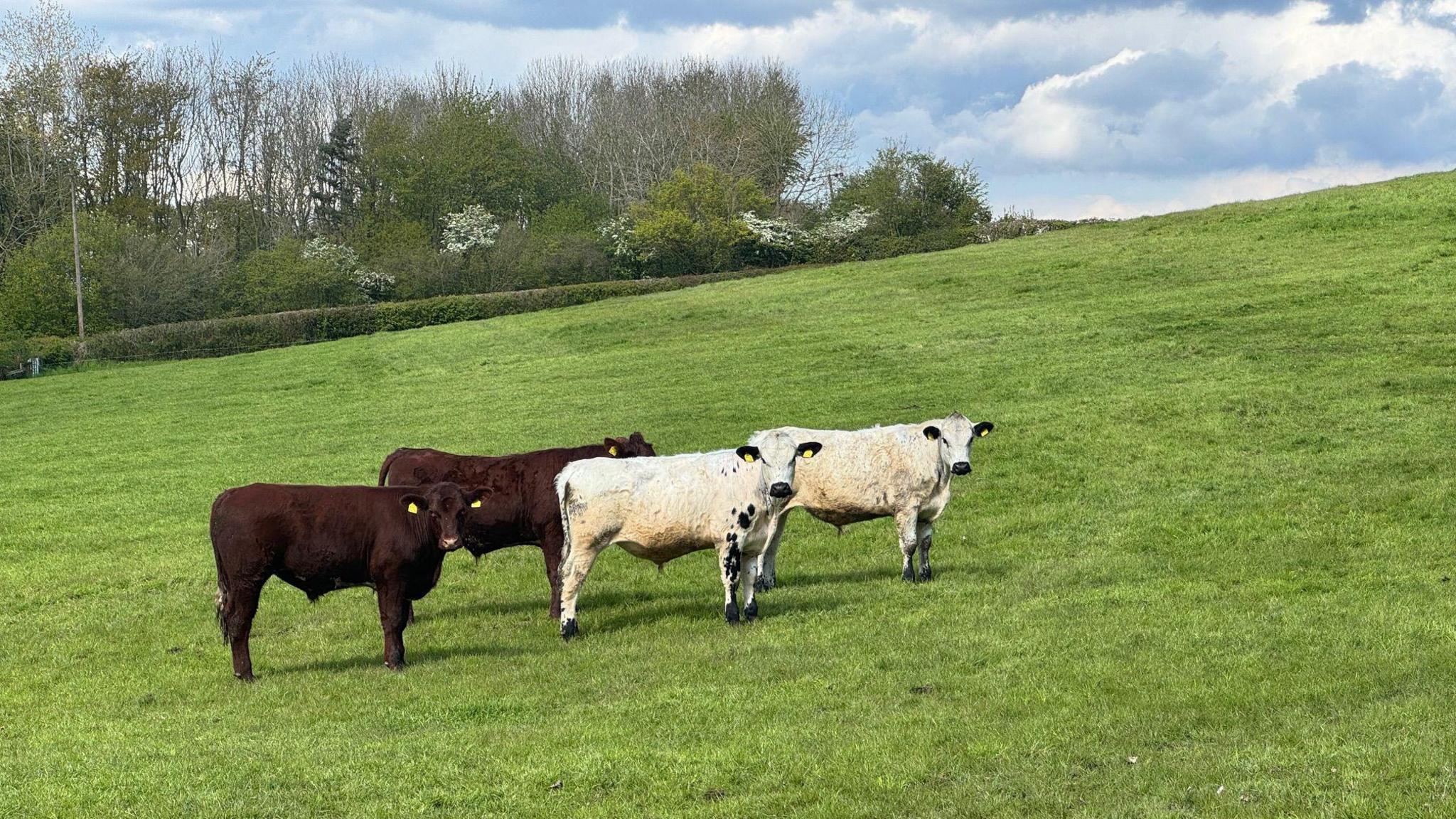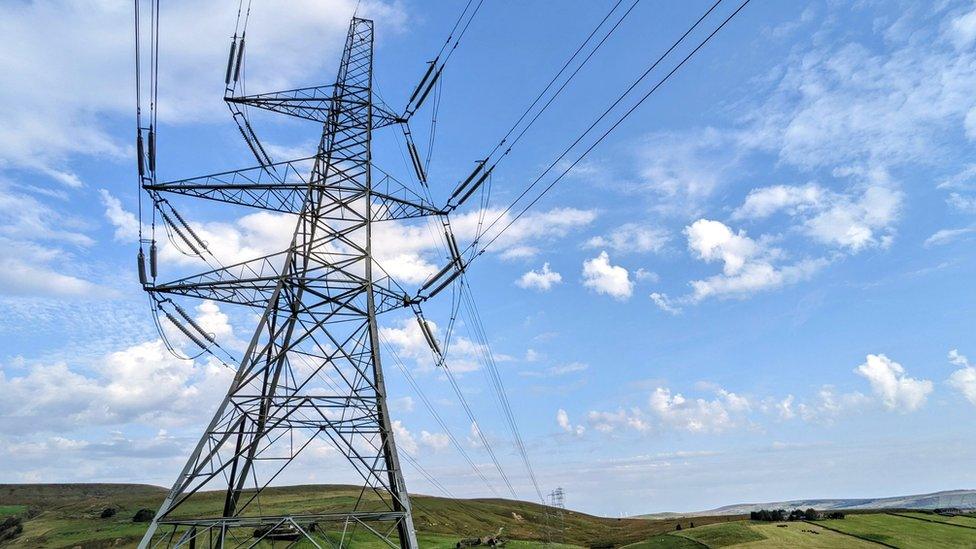Impact of pylons plan is devastating, say farmers

Richard Langton runs the farm with his daughter Georgina Langton McColl
- Published
Farmers with land in the path of a planned three-county pylon line say they may be left with no choice but to sell fields - or close their businesses altogether.
National Grid wants to install a 114-mile (184km) power line of pylons stretching from south Norwich to Tilbury in Essex, to carry electricity generated from offshore windfarms.
Stephen March, who runs the 200-acre (81ha) Vinesse Farm in Colchester with his wife Jane, said they would "not be able to run our farm like the way we do now".
"Everything we have done for the past 30 years has been destroyed," he said.
A spokesperson for National Grid said landowners were protected by the compensation code, external - also used in the building of HS2 - "to ensure fairness and consistency across the country".
"We work closely with farmers and landowners across all our projects to reduce the impact of construction," they said.

Stephen and Jane March have been running Vinesse Farm is based in Colchester since 1989
Mr and Mrs March have been running Vinesse Farm since 1989, although the land has been passed down through family generations for more than 100 years.
According to the proposals, the farm would see 1km (0.6 miles) of underground cabling installed "right through the middle of our farm", as well as a single electricity pylon added.
Ten acres (4ha) of their land will "not be as productive" after the installation, he said, after speaking to other farmers who have seen underground cables laid.
Mr March also estimated that their farm would lose about 500m of hedgerows - and 30% of the affected farmland was only planted by the couple in the last 30 years.
"The land will never be able to grow what it is capable of," he said.
"We are devastated."

Mr March said the business also sold reared beef to a local butcher, and their horses take part in show jumping
Georgina Langton McColl manages Wenham Grange farm in Suffolk with her father Richard. The land has been in her family since 1952.
The proposals would mean the addition of eight pylons over 850 acres (344ha) of land, which she described as "heart-breaking".
"The seven fields that are going to be affected are going to be devalued, the average market rate for a acre of land is about £10,000, but I would be amazed if we would be able to sell it for £5,000," Ms Langton McColl said.
"The main farmhouse is going to be less than 400m from the pylon line.
"My father and I are having to have conversations like 'will this business be viable' - and we're not a small farm.
"I can only imagine what is happening to farmers who are smaller than us."
Ms Langton McColl also said the thought of the farm not being in her family for her future children is "desperately sad".

Georgina Langton McColl said National Grid's proposal was "heart-breaking"
Earlier this month, National Grid said it had run three public consultations which had more than 7,000 attendees across 40 in-person events and 17 webinars.
"The Norwich to Tilbury project is needed urgently to connect new green energy to the grid to ensure homes and businesses in East Anglia and across the country can benefit from more affordable, cleaner electricity," the spokesperson said.
"Proposals put forward to planning authorities always consider biodiversity and impact on the landscape."
A public consultation was expected to conclude on 18 June but has been extended until 26 July to allow for the general election.

The farm has been in the Cottey family for three generations. Charlotte Blaber with her grandad Doug Cottey.
Ramsey Tyrrells Farm in Chelmsford, Essex, is 190 acres and Charlotte Blaber said the land has been in her family for 73 years.
She said it was once farmed by her grandparents in the 1950s but now her mum and uncles look after it.
According to proposed plans, one pylon could be put on the farm.
Mrs Blaber said her family has been left distressed and devastated by the impact the plans could have on her home.
She added that over the last few years, badgers, water voles, dormouse, hedgehogs and shrews have been found living within the area where the work is being proposed.
"It would be in violation of the habitats of these animals to allow any pylon to be placed onto our land."
She said National Grid has offered the family £6,000 in compensation.
She said: "Your farm is your pension and your livelihood.
"It is everything we work for."
Follow Essex news on Facebook, external, Instagram, external and X, external. Got a story? Email eastofenglandnews@bbc.co.uk, external or WhatsApp us on 0800 169 1830
Related topics
- Published19 March 2024

- Published13 March 2024

- Published5 June 2024
